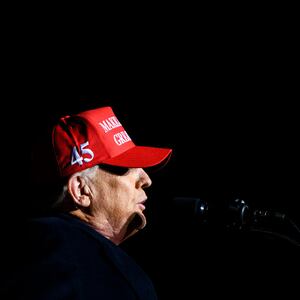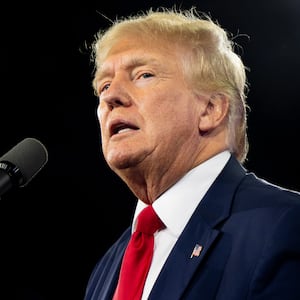The latest filing by former President Donald Trump’s legal team reads more like a children’s game of “let’s pretend” than a legal filing.
Trump’s lawyers made the filing in response to Special Master Raymond Dearie’s request that Trump and DOJ brief him on so-called “global issues” in the case, meaning broad legal issues that can help guide Dearie’s slog through the thousands of documents recovered in the FBI search warrant executed at Trump’s Mar-a-Lago residence.
Trump’s lawyers evidently interpreted “global” as license to make legal arguments so broad that they would render the Presidential Records Act (PRA) as well as legal doctrines like executive privilege meaningless.
A good example of the child-like “let’s pretend” nature of Trump’s case is his argument that the PRA cannot apply for any of the documents he took because they are personal documents. Trump’s brief quotes the PRA as requiring that “materials produced or received by the President … shall, to the extent practicable, be categorized as Presidential records or personal records upon their creation or receipt” but concludes that Trump’s failure to take any steps to categorize the documents is the same as his having categorized the documents as personal.
Such a conclusion would eliminate the PRA altogether and substitute a “whatever the president thinks” theory as the law for preserving our national history. If this sounds familiar, then you’re likely remembering Trump’s claim that he can declassify documents merely by “thinking about it.”
Same concept: “Just pretend.”
The legal doctrine of executive privilege gets similar treatment. Recall that executive privilege is meant to protect the advice and deliberations of the Executive Branch from needless disclosure; so obviously documents that are purely personal nature by definition would not fall into this category.
Nevertheless, Trump argues that just in case the Special Master decides that the documents taken by Trump are not personal then they would be protected by executive privilege.
Trump’s lawyers call this an alternative argument. It’s not. It’s an inconsistent argument. The very fact that the documents would be personal ones—for example newspaper clippings or mementos—would make it impossible for them to fall within executive privilege. Here’s how Trump’s lawyers explain it: “Simply put, assuming … that the documents were not designated as personal documents during Plaintiff’s presidency, they should be considered Presidential documents shielded by executive privilege.”
There is no discussion about how the same characteristics that would make the documents merely personal ones could also transform them into privileged ones. In other words, if the documents are not personal documents then just pretend they are executive privileged documents.
The Justice Department does not believe in make-believe when it comes to search warrants and criminal prosecutions. In their filing of Nov. 8, 2022, which was just unsealed, DOJ argues that Trump “cannot contend that a document is ‘purely private or non-public’ under the PRA while simultaneously claiming, as a backup, that it reflects confidential executive communications.” They characterized Trump’s alternative arguments that the documents he took were either personal or are executive-privileged ones as a “shell game” and one “the special master should not indulge.”
But buried in this back and forth between Trump’s legal team and DOJ are two growing threats to Trump.
The first threat arises from DOJ’s seeking that Trump file an affidavit either confirming or denying the accuracy of the Mar-a-Lago document inventory. Such an affidavit could potentially foreclose Trump’s assertions that the FBI planted documents.
The second threat is DOJ’s asking for the lifting of any restrictions on their use of any documents not found to be privileged under attorney-client or executive privilege. DOJ’s brief states “the categorization of the records at issue as Presidential or personal does not ultimately affect the government’s ability to use and review them for criminal investigative purposes.”
That’s a stark reminder to Trump that all of his make-believe arguments ultimately fade away in the face of a criminal case because you can’t pretend your way out of an indictment.








